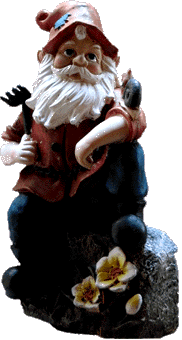How to Control Armyworms and Caterpillars
February 2 ,1999
Do you have any suggestions on Army Worms that took over the Tri-Cities this fall???
Our yard looks very bad as do many, Rick is going to put down sod.
Any preventive advice would be appreciated!!! Thank You!
|

|
The Armyworm as a Caterpillar
Armyworms are actually the caterpillar life stage of a moth.
Their eggs masses which may contain several hundred new worms are deposited on or near plant foods. Each female may deposit several of these egg clusters. The caterpillar that hatches from the egg is only about one-eighth inch long, but when it has fully grown, it reaches a length of about two inches.
The caterpillars, usually feed at night and hide in plant litter just above the soil surface during the day. These moth larvae chew off the grass blades above the soil surface. When there is a major infestation, the grass is eaten to the soil level.
A hard frost may kill the larvae off, but an inspection of areas where armyworms are likely to be found is advisable so that a suitable treatment can be applied before serious plant damage occurs and the larvae mature.
Although the moths do no damage to plants, they will continue their life cycle and produce thousands of new caterpillars.
Predators of Caterpillars
It is sometimes possible to control these bugs using natural predators.
|
|
Green lacewings, pirate bugs, and egg wasps are somewhat effective in the control of armyworms and caterpillars.
Eggs of these predators can be purchased from Bugological Control Systems and other sources, however, if the infestation is out of control (five or more caterpillars per square yard) and chemical control becomes necessary, recommended insecticides containing chlorpyrifos, diazinon, Orthene, or Sevin should be applied.
Read and follow all precautions and directions on the insecticide label before mixing or applying any chemical.
Use all pesticides cautiously and sparingly.
Remember that when you are using chemicals in your garden, you are responsible for the effects of pesticide that may drift to another person's property or plants.
|
|
The following is a letter I received from a reader regarding army worms.....
Armyworm Predators were Killed
Army worms invaded my yard almost a year ago. The winter here (Dallas, TX) was not cold enough to kill them. I have been researching the problem before most agricultural services admitted that there was a problem.
Earlier today, doing yet another search on the Internet, I ran into an interesting item.
Look at the Institute for Agriculture and Trade Policy's Organic Cotton Monitor and you will see that this problem stems from the use of a pesticide to control Boll Weevils, which also killed natural predators of the army worm. According to this article, other than the natural predator control, the only pesticides that will kill them are called Confirm and Pirate.
At the time the article was written, they had not been released by the EPA for use as pesticides.
I am going to do some more research on these two chemicals. None of the other chemicals is effective. Not at all. These particular army worms are 'beet army worms'.
It looks like they have even spread (heavily) as far away as Australia. I am glad to share any noteworthy information about the army
worm problem with other folks looking for solutions.
And looking at a bigger picture than army worms, perhaps we had better consider what unintended results some pesticides may have on the balance of nature. (While at the same time, hoping for a pesticide that kills only army worms!)
Julie Spears
|
|
|
Search The Garden Helper:
